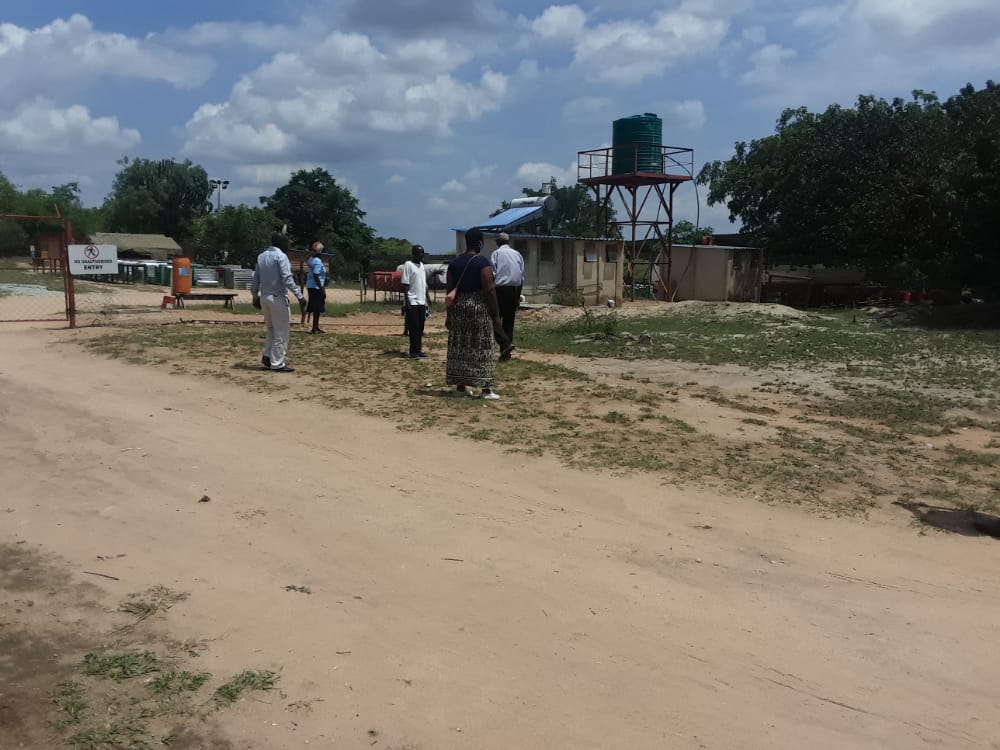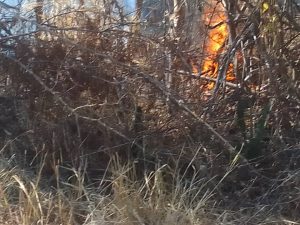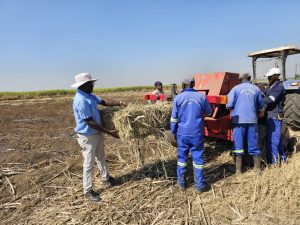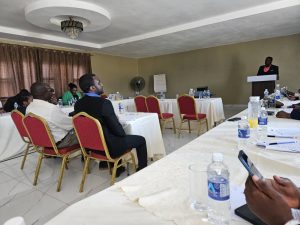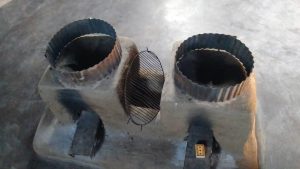Ivon Bake
Just like the Sese community in Chivi resisted diamond exploration by Murowa Diamonds Mining Company, villagers in the Muchemwa area of Buhera district have drawn daggers on First Roots Mining Company which has set base to exploit lithium bearing ore.
Locals said that the miner has left a trail of destruction while exposing the community to serious environmental threats.
Several villagers stand to lose their homesteads and fields due to the mining activities, which cover 21 hectares, while many houses have developed cracks because of the blasting caused by the company.
The mining activity has destroyed farmland and grazing pasture while causing serious noise and air pollution. Some of the mining activity is occurring in areas with graves. First Roots has been extracting lithium in the area, which is under Chief Nyashanu’s jurisdiction.
The company — which says it specialises in the mining of chrome, manganese, iron ore, coal and other minerals that remain largely untapped — first ventured into the extractive sector in 2010. On its website, the company emphasises that its corporate mission is anchored on “responsible mining”.
“Responsible mining is a company-wide commitment that is at the core of every business decision we make and constantly strive to be the best in creating value, lasting social progress and economic growth for all stakeholders,” says the company.
First Roots briefly halted operations last week after a dramatic stand-off with agitated villagers. The mining company left large stockpiles of unprocessed lithium, and a serious trail of environmental degradation, but is preparing to resume operations.
Blasting activity by the company has left houses with massive cracks, while open-cast mining has reduced pastures and farmland into unrehabilitated gullies and unsightly pits. In total, 18 families are likely to be evicted as they are in the mining area.
“During blasting, at times debris would be thrown for a distance of close to 500 metres. As a result, people would take refuge in the nearby mountain and come back at dusk after the blasting. We no longer have any grazing land for our livestock; neither do we have any farming land,” said a member of the villagers’ committee.
Minutes of a meeting jointly attended by community members, the company and government officials on May 24, 2023 reveal that villagers were angered that the company was granted a mining licence without the locals being consulted.
The meeting was attended by representatives from the ministry of Home Affairs, Zimbabwe Republic Police, the Environmental Management Agency (Ema), Agritex, Social Development department, Murambinda Rural District Council and Chief Nyashanu.
“The villagers had agreed that they needed to be compensated for their homes and fields. As Zimbabweans we have the right to good health, peace, freedom, education of our children, and the right to shelter and others. However, First Roots Mine has heavily affected the community,” the minutes read.
“As villagers we have agreed that: Villagers with their homes within First Roots’ mining claim should be relocated elsewhere, while the company is entitled to building the houses as they were before moving.
“Their fields should be compensated with a minimum of US$5 000 once-off payment, and also minimum of US$300 per month for a period of 12 months until they get settled and have decent accommodation,” read the minutes.
The villagers also said First Roots’ operations are likely to spiral into an environmental and health hazard.
“We are appealing to the human rights organisations to assist us as a matter of urgency. Dust from the mine is affecting us. We are hopeless because the Ema department in Murambinda and other departments are not representing us. There are no hospitals or clinics that can assist us,” read the minutes.
The community members said First Roots has been operating with neither a prospecting licence nor an Environmental Impact Assessment (EIA).
An EIA is a process of identifying, predicting, evaluating, and mitigating the biophysical, social, and other relevant effects of development proposals prior to major decisions being taken and commitments made.
The purpose of an EIA is to ensure that environmental impacts are considered when deciding whether or not to proceed with a project. The EIA process is conducted by a team of experts who will assess the potential impacts of the proposed project on the environment, including air quality, water quality, land use and socio-economic impacts.
“So due to the above effects, villagers decided to engage the above government officials, but villagers were shocked when they discovered that First Roots had already been given permission to mine, leaving the villagers vulnerable to health hazards,” the minutes read.
In April, the villagers made a joint agreement that would compel First Roots to relocate them as its operations were affecting locals.
Some of the effects highlighted in the proposal include health hazards such as asthma, lung cancer and respiratory diseases.
The company has also been accused of contaminating grazing land with chemicals, which locals fear will kill their cattle.
This project was made possible through a partnership with the Southern Africa Trust. The views expressed herein do not necessarily represent that of the Trust or its associates. www.southernafricatrust.org

